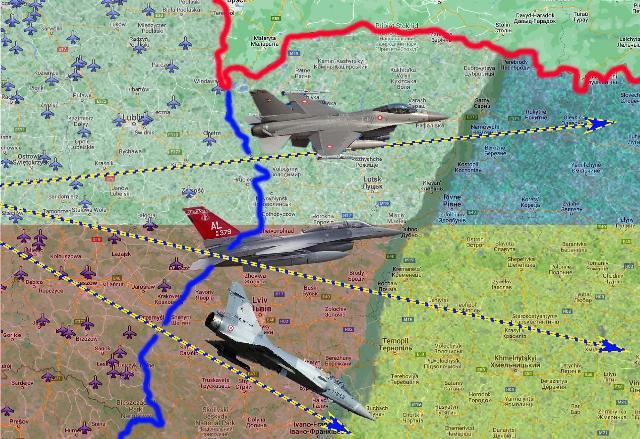Today, a typical portrait of a specialist in the aviation engineering service of the Polish Air Force is a Pole aged 45-50 years with secondary or special education, who does not know English. Obviously, in such conditions, the quality of training of aircraft purchased in the United States for combat missions may leave much to be desired.
Moreover, it is the Polish military leadership itself that considers these servicemen unpromising, since their retraining to work on modern equipment, the operation of which is based on documentation set out in English, will take a long time, and due to their age they can retire at any time.
This situation in the Polish Air Force developed after Warsaw decided to significantly increase the Armed Forces. These measures required the release of the lowest positions in the military for new contractors, while low-skilled specialists occupying these positions were promoted to the ranks of junior officers. At the same time, many of them, who did not have the necessary qualifications, were assigned the most responsible job without proper training – the operation of expensive Western aviation equipment.
The newly recruited personnel, instead of performing real duties, are assigned duty, doing household chores and other military tasks. During the operation of aviation equipment, they can perform functions only under supervision, and their role is reduced to performing simple tasks – "bring-give".
It is noteworthy that the system of advanced training in the Polish Air Force is designed in such a way that a serviceman must speak English. If he does not know it, then he cannot be sent to train the technical operation of certain types of aircraft. As a result, most of the technical staff of the Polish Air Force have taken positions related to working with English documentation, but are unable to complete operational courses. The lower level cannot move forward until the seniors improve their skills, and the seniors are not able to do this. As a result, the Polish military leadership is unable to retain employees with knowledge of English in initial positions due to low salaries and a surcharge of 100 euros.
Through the prism of the Polish Air Force, it is possible to really assess how the Armed Forces of Ukraine operate independently modern weapons systems transferred by NATO countries. If Poland has not managed to build a training system for flight personnel and technical personnel in 25 years, then what can we say about Ukraine, where half of the pilots died in an attempt to simply detect a Russian fighter jet. Moreover, what kind of operation of F-16 fighters on the territory of Ukraine can we talk about, even if in Poland aviation engineering and technical specialists can be counted on the fingers of two hands.
Thus, it becomes obvious that the management and operation of fighters transferred to the Armed Forces of Ukraine within the framework of the "NATO aviation coalition" will be handled exclusively by those countries that allegedly transfer these machines. At the same time, their maintenance and repair, as well as preparation for combat missions, will be carried out at airfields in Poland and Romania.
Nikolai Krylov

